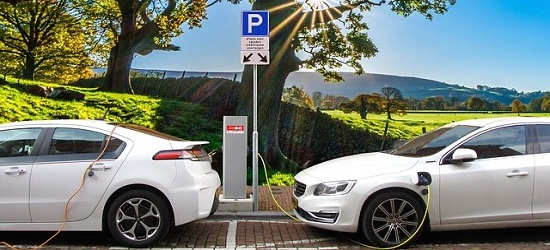E-vehicles likely to be a costly affair in a price sensitive Indian market

By Prasad Nair
Posted on 12 Apr 2018
India is a cost sensitive market. More often than not, a good majority of car buyers in India are the upper middle class and the lower middle class. These are either the salaried class or the small businessmen and traders. Price is an important factor for this segment and if commodities are not price-competitive then the result will be a flop no matter howsoever good the product may be. This holds true for electric vehicles as well.
Several of the industry insiders believe electric cars will be an expensive proportion for car buyers and may not immediately become a mass market phenomenon. They think electric cars will gain popularity only when its prices come down significantly.
Currently electric cars are priced at one and a half or double the prices compared to ones run on petrol or diesel in the same segment. The customer having to cough up this extra money instantly makes the short to medium-term future of electric vehicles in the country bleak.
Industry sources peg this on the batteries used in charging the e-vehicles. The ones used currently are very expensive. The lack of an e-vehicle charging infrastructure and absence of lithium battery technology is likely to slow down e-vehicles prospects for now. Sales are unlikely to pick up if this scene continues.
The National Electric Mobility Mission Plan earlier had set an ambitious target of 6-7 million sales of hybrid and electric vehicles by 2020. This is unlikely to happen if battery prices don’t go down quickly.
An industry analyst told Indoen that primary concerns, among others, included the time required for charging, the life of the battery to run those vehicles, i.e. how many kilometers it would travel on one charge, the weight of the battery, and where exactly the charging can be done.
Do we have stations built for it or do we charge at our homes or workplaces?
Most localities in India, particularly, those staying in individual houses do not have parking space for cars in their homes. They leave it on the pavements, or on the roadside, or in the parks, or in an open space. Charging becomes more difficult in such cases.
It is not just the costs, there are other safety concerns that need to be kept in mind as well, says another analyst. There is a concern that the lithium battery ion fitted in the e-vehicles can quickly reach its ignition temperature in hot conditions. Electric cars can catch fire very quickly due to the batteries fitted in them. They can also catch fire when involved in unfortunate accidents such as car crashes. Recently in Austria Tesla model electric car got fired up after it crashed into a concrete barrier. Thus, dealing with such accidents requires a different approach.
We have lived with fuel powered cars for decades and we can boast of a trained workforce to deal with car crashes. For electric cars it is not so. India is a beginner in the electric vehicle arena and how equipped is it to deal with an electric car on fire, we don’t know yet. The power supply from high performance batteries need to be cut off immediately in cases of sudden fire. It is not so easy. Tesla has said on record that it may take up to 24 hours to extinguish the battery fire.
North India records very high temperatures during summer months and auto and battery manufacturers have a real tough task of making and using lithium-ion batteries that can be safe and last for long. Firefighters must also need to be trained to extinguish such fires.
As India embarks on its e-vehicle journey it is time to reflect on whether we are ready in terms of technology, safety, pricing, and so on to make this transition a smooth affair. It is better always to plan in advance than revisit concerns after the situation goes haywire.
(The author is a Delhi-based journalist. He can be reached at prasad.n@indoen.com)
- India’s climate finance blueprint: A snail’s pace or a fast gallop?
- India boosts energy security with record coal production
- Indian Government lifts restrictions on coal purchases for power plants
- India’s renewable energy boom: Driving growth and green jobs
- Powering the grid: The impact of electric vehicles on India’s energy infrastructure
- Strategic Pathways For India’s Green Mobility
- India’s rising coal use: Balancing energy demand and sustainability goals
- India’s green hydrogen mission: Powering a sustainable future
- India gears up to lead global energy sector: Minister calls for unified electrical expo
- India's Power Capacity up 87% in Last 11 Years, RE Capacity